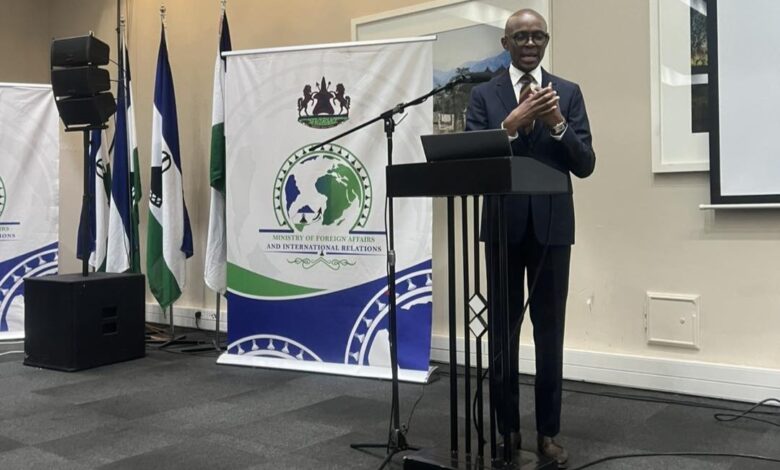Lesotho’s Heads of Missions Engage in Strategic Consultations on National Development Priorities

Maseru, Lesotho — Heads of missions convened today with the Committee of Principal Secretaries in a high-level series of diplomatic consultations focused on aligning international cooperation with Lesotho’s national development agenda. The engagements, part of ongoing dialogues, provided an opportunity for ministries to present key strategies and challenges, with the Ministry of Labour and Employment leading the day’s discussions.
The Ministry of Labour and Employment outlined its core mandate to create meaningful job opportunities for Basotho both locally and abroad. As part of its international labour migration strategy, the Ministry emphasized its role in developing robust policies that support employment opportunities outside the country, with long-term benefits such as increased remittances and economic empowerment of families back home. The presentation highlighted key initiatives under the labour migration framework, including bilateral agreements with foreign governments, upskilling programs for international work standards, and protection measures for migrant workers. These efforts are aligned with Lesotho’s broader goals of reducing unemployment and boosting household incomes through diaspora engagement.
The Ministry of Agriculture reaffirmed agriculture as a cornerstone of Lesotho’s National Strategic Development Plan II (NSDP II). With a vision to transform Lesotho from a consumption-based to a production- and export-led economy, the Ministry stressed the role of agriculture in job creation, food security, and poverty alleviation. Ongoing projects in crop production, livestock improvement, and agribusiness development were shared as evidence of the sector’s strategic potential. The Ministry called for strengthened partnerships and investment in agricultural value chains to enhance productivity and rural incomes.
The Ministry of Public Service presented its performance management framework designed to ensure efficiency and accountability across government operations. Rooted in the Public Service Act of 2005 and corresponding regulations, the framework includes annual performance contracts, measurable work plans, and structured performance reviews aligned with each ministry’s operational goals. The Ministry emphasized that transparent and results-driven public service is essential for achieving national development objectives and building public trust in government institutions.
The energy sector, represented by the Ministry of Energy, introduced the Lesotho Renewable Energy Project — an ambitious plan aimed at improving electricity access across both rural and urban communities. The project involves expanding the national grid, deploying off-grid mini-grids, and building institutional capacity for long-term sustainability. The Ministry noted that access to reliable, clean energy is vital for economic development, education, healthcare, and the growth of small and medium enterprises. The renewable energy initiative is expected to reduce energy poverty while contributing to environmental sustainability and climate resilience.
Today’s consultations underscored the importance of multisectoral collaboration and diplomatic engagement in achieving Lesotho’s development vision. Heads of missions expressed interest in supporting various sectors through technical assistance, investment facilitation, and knowledge sharing. The Committee of Principal Secretaries reaffirmed the government’s commitment to transparency, results-based planning, and international cooperation. With ministries actively presenting their strategies and priorities, the dialogue set a strong foundation for partnerships that will drive inclusive, sustainable growth across the Mountain Kingdom.
Join 'Lesotho News' WhatsApp Channel
Get breaking Lesotho news — delivered directly to your WhatsApp.
CLICK HERE TO JOIN



